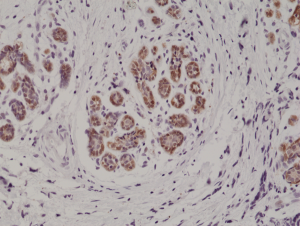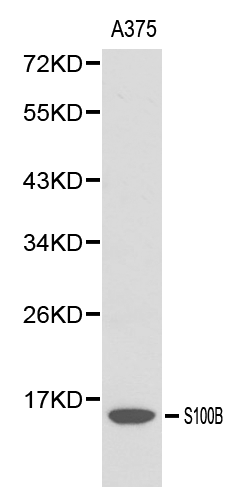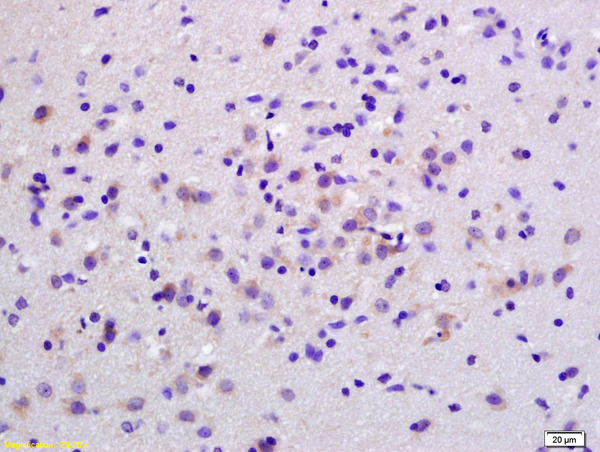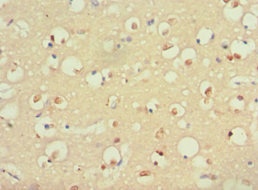
Immunohistochemical staining of formalin fixed and paraffin embedded human breast cancer tissue section using anti-S100B rabbit monoclonal antibody (Clone RM304) at a 1:1000 dilution.
anti-S100-beta (human), Rabbit Monoclonal (RM304)
REV-31-1189-00
ApplicationsWestern Blot, ImmunoHistoChemistry
Product group Antibodies
ReactivityHuman
TargetS100B
Overview
- SupplierRevMAb Biosciences
- Product Nameanti-S100-beta (human), Rabbit Monoclonal (RM304)
- Delivery Days Customer2
- ApplicationsWestern Blot, ImmunoHistoChemistry
- CertificationResearch Use Only
- ClonalityMonoclonal
- Clone IDRM304
- Gene ID6285
- Target nameS100B
- Target descriptionS100 calcium binding protein B
- Target synonymsNEF, S100, S100-B, S100beta, protein S100-B, S-100 calcium-binding protein, beta chain, S-100 protein subunit beta, S100 calcium-binding protein, beta (neural)
- HostRabbit
- IsotypeIgG
- Protein IDP04271
- Protein NameProtein S100-B
- Scientific DescriptionRecombinant Antibody. This antibody reacts to human S100-B (S-100 protein beta chain). It may also react to mouse or rat S100-B, as predicted by immunogen homology. Applications: WB, IHC. Source: Rabbit. Liquid. 50% Glycerol/PBS with 1% BSA and 0.09% sodium azide. S100-beta (S100B) is a member of the S100 family of proteins containing 2 EF-hand calcium-binding motifs. S100 proteins are localized in the cytoplasm and/or nucleus of a wide range of cells and are involved in the regulation of a number of cellular processes such as cell cycle progression and differentiation. S100B may function in neurite extension, proliferation of melanoma cells, stimulation of Ca2+ fluxes, inhibition of PKC-mediated phosphorylation, astrocytosis and axonal proliferation, and inhibition of microtubule assembly. Chromosomal rearrangements and altered expression of this gene have been implicated in several diseases, including Alzheimers disease, Downs syndrome, epilepsy, amyotrophic lateral sclerosis, melanoma and type I diabetes. - S100-beta (S100B) is a member of the S100 family of proteins containing 2 EF-hand calcium-binding motifs. S100 proteins are localized in the cytoplasm and/or nucleus of a wide range of cells and are involved in the regulation of a number of cellular processes such as cell cycle progression and differentiation. S100B may function in neurite extension, proliferation of melanoma cells, stimulation of Ca2+ fluxes, inhibition of PKC-mediated phosphorylation, astrocytosis and axonal proliferation, and inhibition of microtubule assembly. Chromosomal rearrangements and altered expression of this gene have been implicated in several diseases, including Alzheimers disease, Downs syndrome, epilepsy, amyotrophic lateral sclerosis, melanoma and type I diabetes.
- ReactivityHuman
- Storage Instruction-20°C,2°C to 8°C
- UNSPSC41116161








